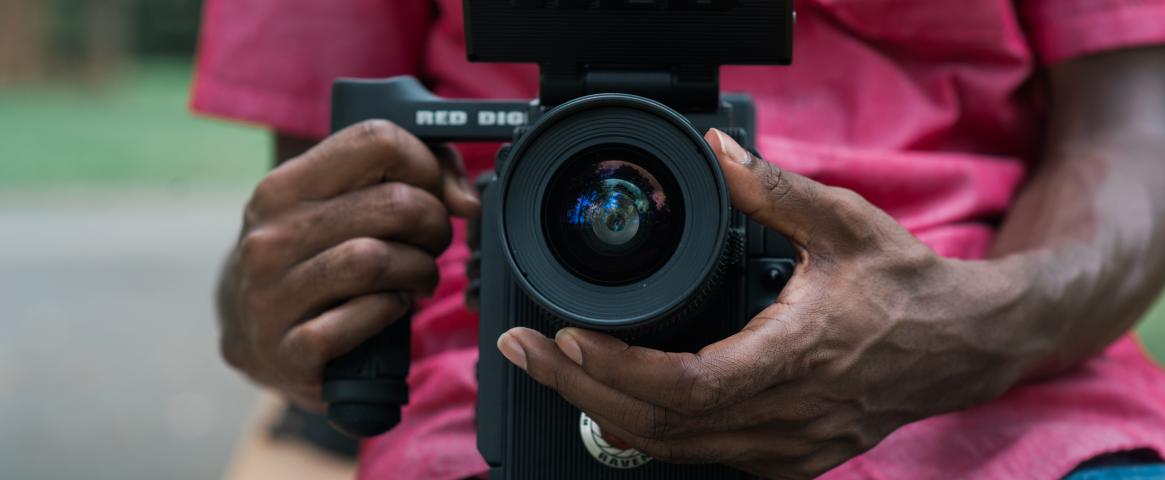By Nora Bradford
Science filmmaking can be a powerful tool for telling science stories about anything from the effect of climate change on Indigenous populations to the development and impact of a gene-editing technology.
In the ScienceWriters2021 session “Innovative Uses of Film in Science Communication,” panelists discussed how they navigate the rapidly changing landscape of science filmmaking.
From TikTok to online streaming services, there are so many more ways to consume science content nowadays, said Sarah Goodwin, executive director of the Science Communication Lab. “I think there’s a real audience for diving into the science,” she said.
Her film Human Nature tells the story of CRISPR, its discovery, its wide-ranging implications, and the humans affected by it. “We definitely had funders who were like ‘no one’s going to watch a film about CRISPR. Who’s your protagonist?’ but our protagonist was CRISPR, and audiences still really enjoyed it.”
Although not everyone seeks out science films, many more will go for something that's labelled as a 'documentary,' pointed out Duy Linh Tu, a journalist and documentary filmmaker. Science can sneak in under a different label.
"I'm an accidental science journalist," said Tu, as he is drawn to people first and science second. Science filmmakers need to find balance between human stories and scientific context.
Filmmakers are trying to make science films more meaty, personal, and interesting, said Sharon Shattuck, Emmy-nominated documentary filmmaker and podcast host. It’s important for interviewees to feel comfortable. “I just ignore the camera. I’m just talking straight to the person and I’m not looking at notes. I’m not looking at questions. And it’s really about having a real conversation,” reflected Shattuck.
Her interviewing skills came to light in the film Picture a Scientist. In the short clip of the film shown during the panel, chemist Raychelle Burks describes many examples of discrimination in her day-to-day work, from being mistaken for a janitor to receiving inappropriate emails.
Making sure your films actually have an impact is also important. Eva Pietri, an assistant professor at the University of Colorado, Boulder, is studying how films like Picture a Scientist impact Black female students. In a previous study, Pietri found that a story about a Black female computer scientist portrayed through video was more impactful on these students than a written story.
Virtual screenings work well too, they don’t have to be in-person to make a difference, Pietri said. Pietri and her research team recruited participants from screenings of Picture a Scientist and studied their impact on audiences. Those results will be available in preprint form shortly.
It’s important for scientists like Pietri to be part of science filmmaking, encouraged Goodwin, because they’re accustomed to reading and searching for academic papers. Fellow scientists can make it clear to interviewees that they speak the same language and will portray their science accurately. “This goes for masters, PhDs, or anyone who’s worked in a lab for a while,” Goodwin said.
"Science filmmaking is a team sport. You don't have to be 'the dude with the camera.' Find people who do what you can't do to help create what you want to create." Tu said. All skill-sets can come in handy when telling a science story through film.
Whether you’re the person with the camera or the scientist in a lab coat or anyone in between, there’s a space in the filmmaking industry for you and the story you want to tell.
Nora Bradford (@noraabradford, they/them/she/her) is a PhD student who studies cognitive neuroscience at University of California, Irvine. Reach them at noraab@uci.edu.
Hero image by Skye Studios on Unsplash.




